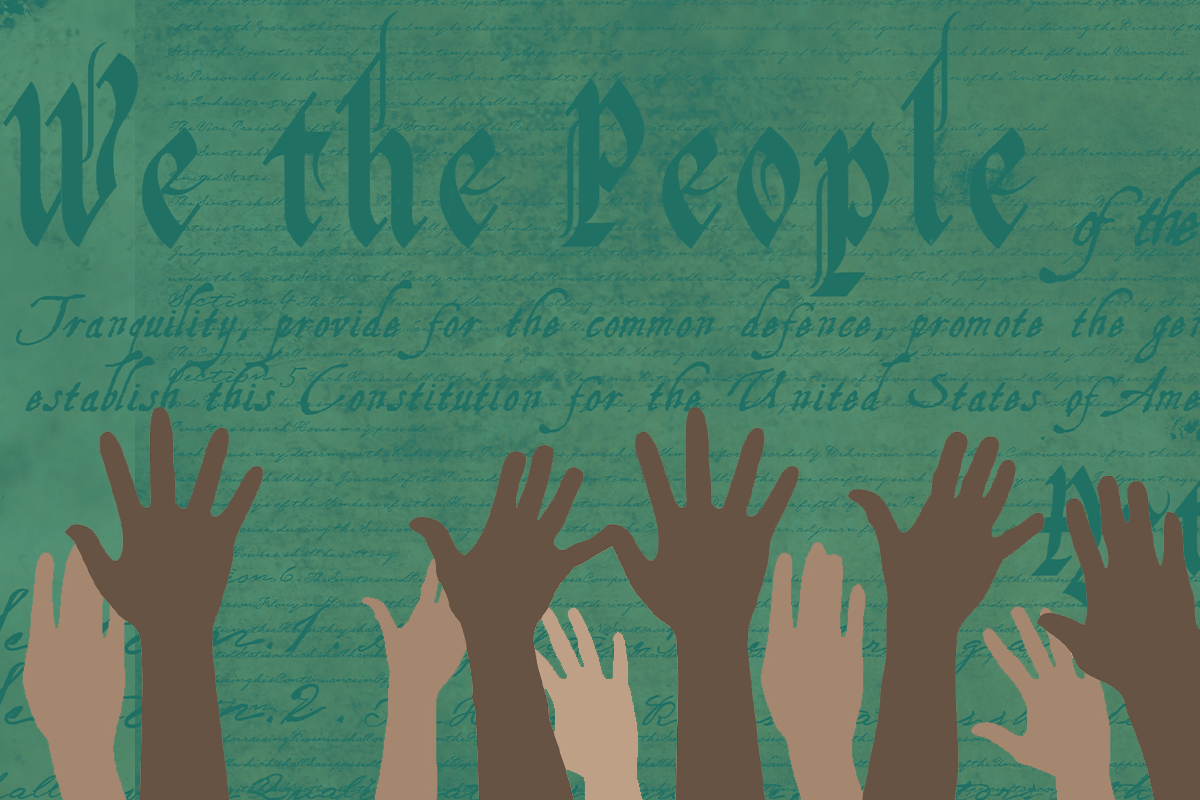
Civics Is Social and Emotional. We’re Using Play to Teach It That Way.
2020 showed how transformative civic engagement can be. We’re building on this by using play and SEL to engage teens in the learning and doing of democracy.
The events of 2020 have forced into the national consciousness the foundational need for both responsible civic engagement and attending to young people's social and emotional well-being. As the pandemic and its ripple effects have endured, social and emotional connection and skill development have become a non-negotiable anchor for many school communities. At the same time, the power of individual choices to impact the well-being of whole communities has been thrown into high relief.
It is timely that in the past few years, thinkers and practitioners at the leading social and emotional learning organization (such as CASEL) have prioritized connecting young people's social and emotional competencies to larger questions of civic responsibility and justice. CASEL defines transformative SEL as "a process whereby students and teachers build strong, respectful relationships founded on an appreciation of similarities and differences, learn to critically examine root causes of inequity, and develop collaborative solutions to community and societal problems." This definition aligns with iThrive's view that civics is social and emotional, and that social and emotional skills enable responsible civic engagement.
iThrive embeds social and emotional learning opportunities into civics role-playing simulations for high school students through iThrive Sim, a role-playing platform and accompanying SEL-rich scenarios that invite teens to experience the very human factors in all civic endeavors in a visceral way.
We see educators creating civics-centered contexts for teens to practice social and emotional skills, preparing them for meaningful and transformative civic engagement in three primary areas: self, community, and the world.
Self
At the intrapersonal level, all students must be able to see themselves — and believe they deserve to be seen — in the story, purpose, and future of our democracy. The stories we tell in classrooms, both in words and in actions, must enhance self-awareness by reflecting the diversity of the students we teach. This can spark in all students, and particularly those traditionally excluded from mainstream education, a sense of belongingness, motivation, and efficacy to engage in the democracy we all must steward into the future.
Community
Interpersonally, students (and all adults) must come to view individual and cultural differences as rich assets. They also must cultivate self-management, social awareness, and relationship skills, including the ability to manage discomfort and pause to investigate their habitual biases in order to fully see those with whom they disagree. Without these skills, we cannot hope to meet on common ground to tackle our society's most intractable challenges.
The World
Students must both see and understand systems of injustice and foster the beliefs and skills needed to advocate for changes that make a more just society for themselves and others. They should develop the skills to make responsible decisions that enhance not only their own best interests but the interests of the collective, global community. A genuine concern for the just and ethical treatment of all members of our society starts with seeing ourselves in each other, and believing that we all deserve to play an important role in realizing our country's highest ideals.
If we consider school communities as microcosms of democracy, wherein we norm and enact the values of our civic society writ large, the fact that civic and social and emotional values are the fabric of school environments becomes obvious. The question is whether or not we are making them tangible, speaking about them directly, and using them to elevate learning and connection. We have a responsibility and an exciting opportunity to do so.


